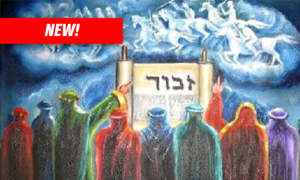Sicha, Shabbos Parshas Shemos, 24 Teves 5736,
Sicha, Shabbos Parshas Ki Sisa, 15 Adar I 5717,
And Sicha, 11 Nissan 5736.
The Great Test
Elijah the Prophet called for a public showdown between himself and the priests of the Baal, in order to finally put to rest the question of who was right and who the true god was. The dramatic and breathless day climaxed with fire descending from heaven and consuming only Elijah’s offering. Following that, the Jewish people repented (Source 1).
The Sages tell of a fascinating anecdote: the bull designated by the Baal priests as an offering refused to budge and be sacrificed to an idol, only relenting once Elijah explained to it that it too would be playing a crucial role in sanctifying G-d’s name – just like to bull that he would sacrifice to G-d (Source 2). The prophets of the Baal planned to deceive the audience and hide a man under the altar who would light a fire. Miraculously, he was bit by a snake (Source 3).
Who Was Sanctifying G-d’s Name?
The Rebbe explains that the bull’s refusal to go is a human tendency, where one avoids essential actions they deem beneath their dignity …
(Story of Reb Yosef the wagon driver – the great scholar send to be a wagon driver to help a Jew return to G-d.)
How long will you waver between two opinions?
Elijah’s call to the Jews is perplexing. Rather than asking them to serve G-d, he asks them to make a decision between the two options. One who sits on the fence without taking a position is worse off than one who worships Baal, for three reasons: It will make it harder for them to repent, because they will excuse themselves saying they also believe in G-d; they are worse off than the Baal worshipper because they knew G-d, yet rebelled against Him for material gain; and their influence is more harmful because they are still considered part of the community.
The Talmud says that the inclination towards idolatry was removed from the world (Source 4), however the “fence-sitters” – the human tendency to want both worlds without committing to anything – is still alive and kicking. There are those who believe that they can freeze their commitment to Jewish values and torah for a short while for fame, glory or financial or social gains.
Yechidus: Without compromise.
How Did Elijah Take a Chance?
Something else is difficult to understand about the story of Elijah on Mount Carmel. In hindsight, it was an overwhelming success, but how did Elijah take the chance, knowing the the response to his call to “choose a path” might be a decision to stay with idolatry?
Elijah knew that when pressed, a Jew will always choose G-d.
Yechidus: Elijah didn’t take a chance.






